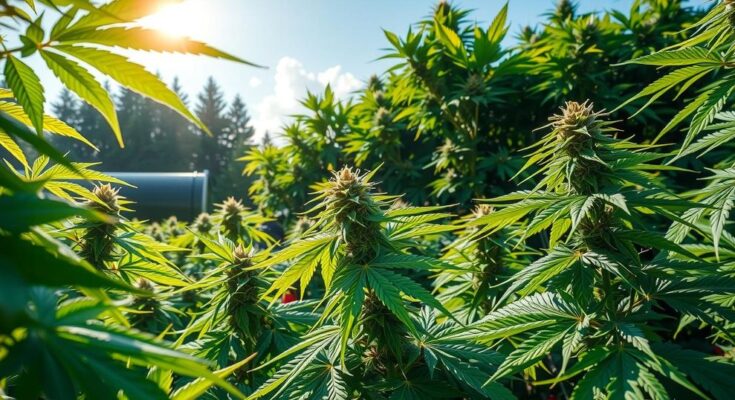In Berlin, the landscape of cannabis culture has shifted dramatically since the law change nearly a year ago. As of April 1, 2024, adults are allowed to possess up to 25 grams in public or keep 50 grams at home, and can grow up to three plants each for personal use. Additionally, cannabis cultivation associations are now operational, enabling members to grow marijuana together for their own consumption.
Estimating the rise in home cultivation poses a challenge, as it’s not officially tracked. A YouGov survey indicates 7% of adults in Germany have bought seeds for personal growing post-legalisation. Experts see notable growth in home growing, with seed banks reportedly facing shortages in the initial months following the new law.
Deborah Reich, who runs a CBD store, noticed an initial spike in demand for cannabis seeds and cuttings, though she suggests this demand has levelled out. Five associations in Berlin have secured permits to cultivate cannabis, with 21 more applications awaiting approval. The Green Leaf Society was the first granted permission, offering its 100 members approximately 15 grams per month.
Another association, White Lake Weed, is set to harvest its first crops by summer and aims to offer competitive pricing compared to black market rates, which hover around 10 euros per gram. However, worries linger over illegal cannabis trade; police have noted little impact on the black market since the law’s implementation, citing only 14,446 drug-related offenses in 2024—concerningly low for the decade, but with some still tied to cannabis sales.
Mental health experts caution against the potential repercussions of increased cannabis use, highlighting a rise in substance use among vulnerable populations. The law prohibits those under 18 from engaging with any cannabis-related activities, with strict regulations to protect youth in areas near schools and facilities.
Berlin’s cannabis legalisation has allowed personal growing and community cultivation, yet concerns about illegal trade and health impacts remain. Experts note a rise in home cultivation, with industry figures reporting a stable demand for cannabis products. Mental health experts warn of potential risks, especially among youth as the black market still operates at significant levels.
The legalisation of cannabis in Berlin has opened new avenues for residents, allowing personal cultivation and fostering community-based marijuana growing. Despite the progress, the persistence of the illegal market raises significant concerns. Health professionals voice worries over increased cannabis consumption and its influence on mental well-being, especially among young individuals. This complex landscape requires ongoing attention to balance legalisation benefits with public health and safety considerations.
Original Source: themunicheye.com



